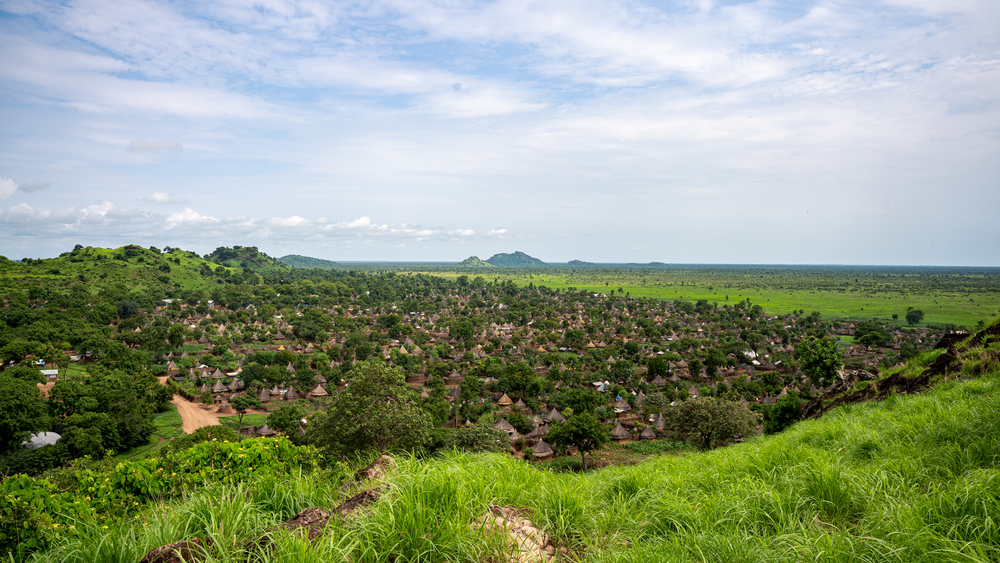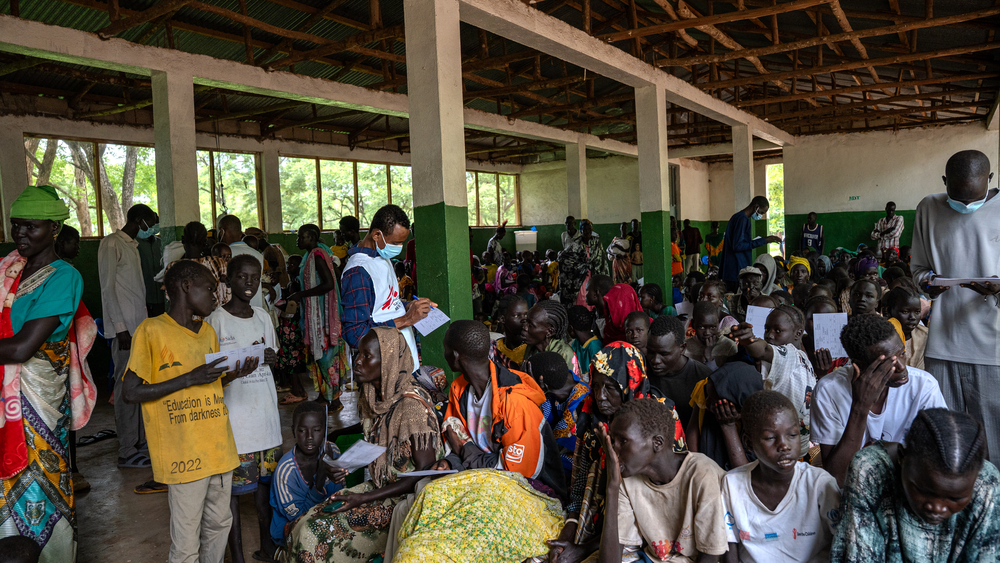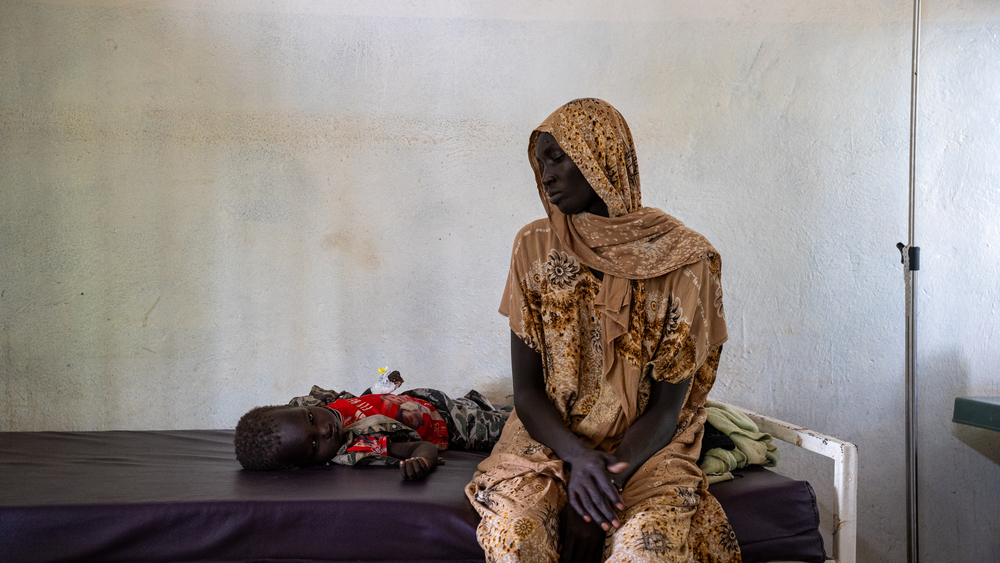… As humanitarian funding dries up, thousands of refugee children in Ethiopia’s Gambella region face hunger, disease, and a collapsing health system, while those left behind scramble to fill the void.
By Bunmi Yekini

In Ethiopia’s Gambella region, the once life-sustaining safety net for nearly 400,000 South Sudanese refugees is rapidly unravelling. Following drastic cuts to humanitarian aid from key global donors, most notably USAID, essential services like food distribution, health care, and disease prevention have collapsed in large parts of the region.
Among the worst hit are 80,000 children under the age of five who are now at risk of life-threatening malnutrition after nutrition services were suspended in four of the seven refugee camps.
“We receive food once a month, maize, wheat, and sorghum, but it always runs out before the month ends,” said Nyauahial Puoch, a mother who travelled 8 kilometres from Tierkidi Refugee Camp to the MSF clinic in Kule Camp. Her 17-month-old daughter, diagnosed with malnutrition, is one of many children struggling to survive on less than 600 calories a day, less than a third of the recommended daily minimum.

The consequences of the cuts are stark. Since October 2024, MSF has recorded a 55% increase in child admissions to its therapeutic feeding centre in Kule. Half of these children arrive from camps where nutrition services have been entirely shut down.
“We walked three hours from our home in Akula camp to get to the MSF hospital,” said Kuoth, a mother whose one-year-old child was hospitalised for 15 days after suffering from a combination of severe malnutrition, diarrhoea, and respiratory infections. “There was nowhere else to go.”
Clinics Overwhelmed, Services Disappearing
MSF’s outpatient department in Kule is bursting at the seams. In 2025 alone, it has seen a 58% rise in patient visits compared to the previous year. Maternal health needs are also surging, with antenatal care visits increasing by 72%, a sign of growing desperation as other clinics close shop.
“We’re receiving more patients from other camps,” said Armand Dirks, MSF’s Project Coordinator in Gambella. “Largely because these services are no longer available locally due to many NGOs withdrawing. MSF is overwhelmed, and we fear the numbers will continue to rise.”
Empty buildings in the camp, once bustling centres of aid activity, now stand as haunting symbols of a system in collapse.
“Walking through the camp, you’ll see many empty buildings, spaces once used by NGOs that have now withdrawn,” Dirks said. “Their absence is deeply felt. Services that once supported this community have now disappeared.”
Malaria Looms as the Next Threat
As the rainy season peaks, another deadly threat is intensifying: malaria. With prevention programs drastically scaled back, MSF has already treated more than 23,800 cases in 2025, a 125% rise in cases from June to July alone.
“Cases are expected to rise sharply during this peak transmission period,” warned Birhanu Sahile, MSF’s Deputy Medical Coordinator. “This poses a serious threat to already vulnerable refugees who face heightened exposure to malaria-infected mosquitoes due to overcrowded living conditions and limited sanitation.”
Efforts to contain the outbreak are underway. MSF is distributing bed nets, bolstering treatment efforts, and planning to open a dedicated Malaria Health Post in Tierkidi Camp, which hosts over 74,000 refugees.

A Cry for Urgent Global Attention
Despite the dire situation, MSF remains one of the few actors still providing services in Gambella’s refugee camps, delivering health care, mental health support, nutrition programs, and more.
“MSF is working at full capacity, but the scale of needs in Kule far exceeds what we can address alone,” Birhanu said. “Without urgent support and interventions from other actors, this crisis will continue to escalate, putting thousands of vulnerable lives at even greater risk.”
As donor fatigue continues to shrink global humanitarian budgets, MSF is calling on the Government of Ethiopia to step in by integrating refugees into the national health system and building local capacity to withstand future shocks.
Because for families like Nyauahial’s and Kuoth’s, time is not a luxury.
“Since last year, there has been a big decline,” Nyauahial said, clutching her daughter. “Some of the items we used to get are no longer provided at all.”
